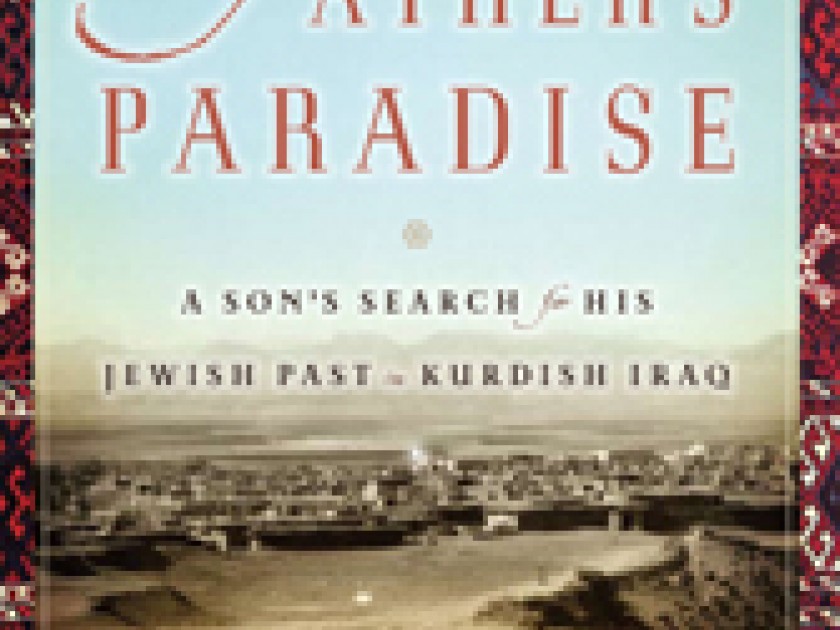
I’m currently in the middle of Ariel Sabar’s memoir My Father’s Paradise: A Son’s Search for his Jewish Past in Kurdish Iraq and am fascinated by the history of the Jews and Muslims in Zakho, who lived alongside one another in mountainside villages for nearly 2,700 years. The two communities lived, more or less, peacefully alongside one another during that time, and the Kurdish Jews were subjected to almost none of the anti-Semitism that Jews in other regions of the world were forced to combat. As Sabar explains:
Seclusion bred fraternity… In important ways, they were Kurds first and Muslims, Christians, or Jews second. Muslims sent Jews bread and milk as gifts after Passover… They sent their Jewish neighbors hot tea during the Sabbath, when Jews were forbidden to light fires … And the Jews paid back the respect, forgoing cigarettes, for instance, during the holy month of Ramadan, when Muslims may not smoke.
Sabar crafts an intriguing portrayal of this exceptional community, blending his family’s personal history with the larger history of the region, interspersing stories and anecdotes of the people who have lived there.
(If you’re interested in more titles about Iraqi Jews, you may enjoy these new titles: Iraq’s Last Jews: Stories of Daily Life, Upheaval, and Escape from Modern Babylon (Tamar Morad, Dennis Shasha, Robert Shasha, eds.) and Memories of Eden: A Journey Through Jewish Baghdad (Violette Shamash))
And, conveniently another book that focuses on relationships between Muslims and Jews has found its way to my desk. This stunning book of photography, Besa: Muslims Who Saved Jews in World War II, by Norman H. Gershman, tells the story of Albanian Muslims and Besa, a code of honor deeply rooted in Albanain culture and incorporated into the faith of Albanian Muslims. Besa dictates a moral behavior so absolute that nonadherence brings shame and dishonor to one’s family. Gershman has collected the stories of Muslims in Albania and Kosovo, who sheltered both Jews from their own cities, but also thousands of Jews fleeing other European countries. Each story is accompanied by Gershman’s gorgeous photographs, revealing a hidden period in history, and the compassion of ordinary people.
The stories in Besa will be the subject of a full-length documentary, God’s House, currently in production. To view the trailer, click here.
Originally from Lancaster, Pennsylvania, Naomi is the CEO of Jewish Book Council. She graduated from Emory University with degrees in English and Art History and, in addition, studied at University College London. Prior to her role as executive director and now CEO, Naomi served as the founding editor of the JBC website and blog and managing editor of Jewish Book World. In addition, she has overseen JBC’s digital initiatives, and also developed the JBC’s Visiting Scribe series and Unpacking the Book: Jewish Writers in Conversation.